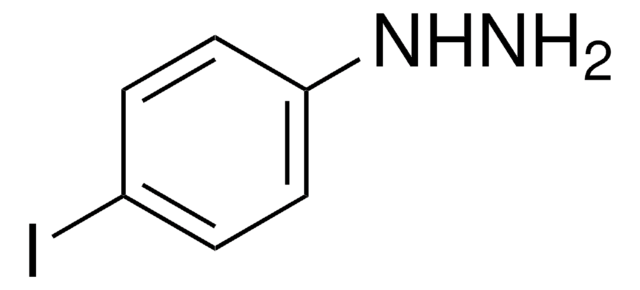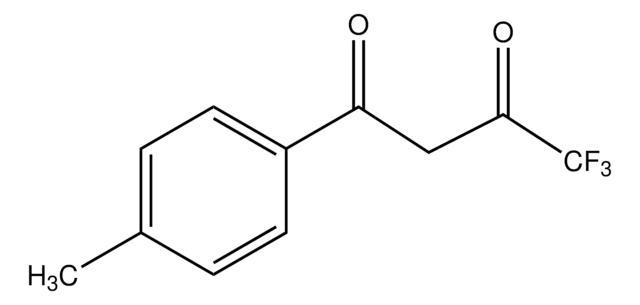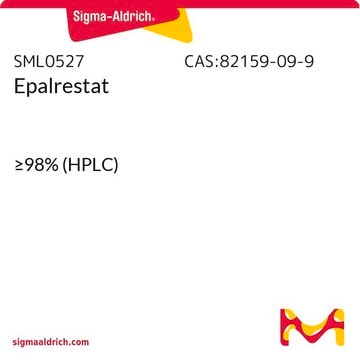143219
4-Bromophenylhydrazine hydrochloride
99%
Synonym(s):
1-(4-Bromophenyl)hydrazine hydrochloride, 2-(4-Bromophenyl)hydrazinium chloride, 4-Bromophenylhydrazine monohydrochloride, p-Bromophenylhydrazine monohydrochloride
About This Item
Recommended Products
Quality Level
Assay
99%
form
powder
mp
220-230 °C (dec.) (lit.)
functional group
bromo
hydrazine
SMILES string
Cl.NNc1ccc(Br)cc1
InChI
1S/C6H7BrN2.ClH/c7-5-1-3-6(9-8)4-2-5;/h1-4,9H,8H2;1H
InChI key
RGGOWBBBHWTTRE-UHFFFAOYSA-N
Looking for similar products? Visit Product Comparison Guide
Application
- acylsulfonamides and acylsulfamides
- 9-bromo-2-ethenyl-7,12-dihydroindolo[3,2-d][1]benzazepin-6(5H)-one
Signal Word
Danger
Hazard Statements
Precautionary Statements
Hazard Classifications
Skin Corr. 1B
Storage Class Code
8A - Combustible corrosive hazardous materials
WGK
WGK 3
Flash Point(F)
Not applicable
Flash Point(C)
Not applicable
Personal Protective Equipment
Choose from one of the most recent versions:
Already Own This Product?
Find documentation for the products that you have recently purchased in the Document Library.
Customers Also Viewed
Our team of scientists has experience in all areas of research including Life Science, Material Science, Chemical Synthesis, Chromatography, Analytical and many others.
Contact Technical Service













